Arsene Wenger: Arsenal boss's appointment was destiny - Dein
- Published
Wenger's Arsenal in numbers
Arsene Wenger takes charge of his 1,000th competitive match as Arsenal manager when they play Chelsea on Saturday.
Yet an era that has reshaped both the club and British football might never have come to pass had it not been for a chance meeting and a game of charades, external in January 1989.
David Dein on 'remarkable' Wenger
That month at Highbury, as the Gunners reached half-time, Wenger was being introduced to a man who would go on to recruit him and start a journey that he would still be travelling on a quarter of a century later.
The gentleman in question was David Dein and that moment was the start of a relationship that led to Wenger's appointment on 30 September 1996,, external followed by the most successful period in Arsenal history.
Dein left his post as vice-chairman in 2007, external and there has been no silverware since 2005,, external but Wenger remains at the helm and his former boss told BBC Sport how it all began.
The first meeting
"I've always taken an interest in global football. I knew his name but had never met him until 1989 when he showed up, quite surprisingly, at Highbury to watch a game.
"My wife, Barbara, was in the cocktail lounge. She'd managed to escape from what was then the Ladies' Room - which, euphemistically, people used to call the Broom Cupboard - and they started up a conversation with Arsene. I was in the boardroom at the time and she asked me if I knew Arsene Wenger, the Monaco manager, was in the cocktail lounge.
"So I went through at half-time, introduced myself to Arsene and said, 'What are you doing here?'. He said: 'I've just come from Turkey'. It was the break in the season in France and he wasn't going back to Monaco for a few days. He said: 'I'm just here overnight'. So I said: 'What are you doing tonight?'. He said: 'Nothing'. I said: 'Well, my wife and I are going out for dinner to a friend's house, would you like to join us?'. He said: 'That would be great'.
"That evening we took him out to our friend's house for dinner. Coming from Strasbourg, his first two languages were French and German - and his English wasn't that great at the time - but he felt quite comfortable. The friend happened to be in showbusiness and they decided to play charades at the end of the evening. I said to Arsene, 'Do you want to play?' He said: 'OK', and about two minutes later he's acting out A Midsummer Night's Dream.
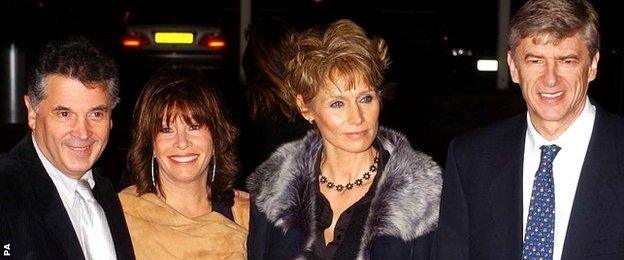
Dein's wife Barbara unwittingly played a key role in bringing Wenger, pictured next to partner Annie, to Arsenal
"I thought 'This guy's something special, he's a bit different'. Just then it was like a flash of lightning, I sort of saw in the sky: 'Arsene for Arsenal, it's destiny, one day he will be our manager'."
The chase
"We used to go to the south of France quite often and every time Arsene would invite us to watch Monaco play. He didn't realise it but he was auditioning. Because I saw how he worked, how he interacted with the players, with the board, with the fans, with the press.
"If you think the English press are fairly intrusive, the French press are even more so. They were outside the dressing room at half-time to try and get an interview - but Arsene handled everything very calmly, very professionally and I was supremely impressed. I thought 'When the time comes, he must be up there'. I followed his career very closely.
"He went to Grampus Eight in January 1995 and that was a brave move for him. People thought 'Why would he want to go to Japan when he had so much going for him? He could go to many clubs in Europe'. It just shows you the type of man Arsene is that he decided he wanted to improve himself - and he did. He went to Grampus Eight. They were at the bottom of the league and in the first year they won the Emperor's Cup.
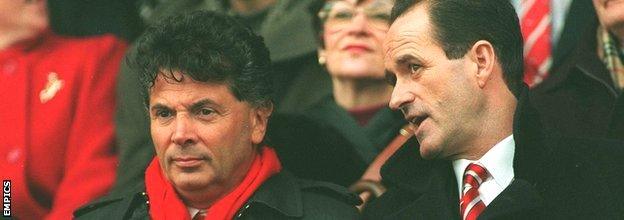
The Wenger years could have started earlier had Dein had his way after George Graham's departure
The false start
"When George Graham left in February 1995,, external I actually promoted Arsene to be the manager then and the board were reluctant to go for an overseas manager. They'd rather be a bit more conservative and stick to somebody who understood Premier League football, English football. So we went for Bruce Rioch in June 1995., external
"I thought it would be nice if I kept in touch with Arsene, so I used to send him the old video tapes after each match and he would send me a fax back. I was always interested to get his reaction because he is so analytical. He was living at the same house Gary Lineker stayed in and the fax had on the top - and I've still got them somewhere - the name 'Lineker,' which was sweet.
"We would always talk about how Arsenal were playing, what he thought of the team and, above all else, what was going on in world football. He was my personal pundit.
Wenger on 15 years at Arsenal
"When Rioch didn't really work, I was far more forceful the second time round and I'm glad to say the board agreed to take Arsene on. It must have been July/August 1996 and Arsene was still under contract at Grampus Eight. There happened to be a break in their season in October. When we went over to see him it was agreed, very kindly and in very gentlemanly fashion, that he would be released in October of '96.
"We would have had other names in case Arsene didn't want to take on the job. But he was certainly top of the list for me because I'd seen him in action, I'd seen him work.
"I made sure I did some due diligence. We have a mutual friend in Gerard Houllier so I rang up Gerard, who at the time was technical director for the French Football Federation. Gerard knew him because Arsene and he had run parallel doing their coaching badges. I said to Gerard, 'What do you make of him?' and Gerard gave me just a glowing reference. So that was enough for me.
"I also rang up Glenn Hoddle because he had played for Arsene in Monaco. Once again, Glenn said: 'He's a different guy'. Everywhere I went, people said the same thing - 'He's a class act'."
The marriage
"He came in and we had a press conference. Obviously people had no idea what he was like and I can understand that. He was an unknown quantity in English football.
"The headlines were: 'Arsene who?'. I remember going to the training ground to tell the players before it was publicly announced. I said to the boys, 'We've got a new manager starting today, it's Arsene Wenger' and a voice from the back said 'Who the **** is that?'.
"Any appointment of a manager is always a risk, but these things are calculated risks. I always live by the motto of the turtle and that is: you'll never get anywhere unless you stick your neck out.
"Think of what Arsene has changed, not just for Arsenal but for English football generally: training methods, dietary controls, tactics, style of play. In the 80s and early 90s, there was a big drinking culture in English football, external and certainly Arsenal. We had a Premier League team of drinkers.
"Arsene had to clear all that out. He got the boys to understand their bodies, to respect them, to do the right thing, to train properly, to come in on time. It was a revelation.
"There was a culture shock. I was on the team coach coming back from Aston Villa. After their meals there was a sudden outbreak, a chorus from all the boys, saying: 'We want our Mars Bars back! We want our Mars bars back!'. He turned round and said, while wagging finger, 'Oh no'. It was light-hearted but they realised things had to change for the better.
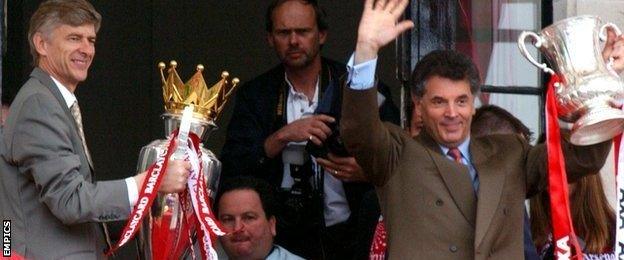
It is almost nine years since Arsenal won a trophy after a glittering first nine years in charge for Wenger
The glory
"People ask me how I knew Arsene was the right man and I say that after winning the Double in his first full season, external that was a pretty good indication.
"He is a meticulous guy in everything he does. He is so focussd, dedicated and protective of his players. He is virtually the first one on the training ground and the last one to leave. He's a very private man so, apart from his family, his whole life is dedicated to football.
"I always say the best car to buy second-hand is Arsene's because it doesn't go anywhere. Literally, it goes to the training ground and back, and to the stadium every couple of weeks. He's absorbed with watching football and he's got a phenomenal encyclopaedic knowledge of players.
Henry issues Arsenal warning
"He has to be right up there for what he has achieved and, quite apart from that, he's done it with style and dignity.
"His legacy will be probably a magnificent stadium, a fantastic state-of-the-art training ground,, external a very strong squad - it can still be improved obviously - the style of play and also, which people forget, the recognition of Arsenal Football Club around the world. I travel enough and I can tell you it's now a global name, and much of that is because of Arsene Wenger and what he's achieved."
The tough times
"I don't think anyone could predict that, but building the stadium was a necessity because we had outgrown Highbury., external We had a season-ticket waiting list of about 30-40,000 people, so we had insatiable demand and had to make sure we could get more people in. We had to move.
"But with that comes its own tensions because the truth is we didn't have enough money at the time. We were really punching above our weight. We had to buy bargains, get players cheaply and develop our own. There was a balancing act between building the stadium and keeping the team competitive. The fact that Arsene has managed to do that is an enormous achievement.
"In a way I think he is a victim of his own success. Winning trophies set a new level, the expectations of the fans became very high. They want a trophy and I sympathise with that - I'm a fan. But in the Premier League there's another 19 clubs who also want the same thing.
"Nobody wants success more than Arsene does. He's as competitive as ever, but getting the talent is easier said than done. Arsene also believes in stability and you've got to say his track record is good. OK, they've had a barren patch,, external but this season hopefully it will all change.
"Where he goes from here is another story because it is very competitive out there. I've got no idea if he'll sign a new contract - personally I'd like him to continue, but it will be his decision.
"It's fairly common knowledge that every season Real Madrid were after him., external Indeed, the French Federation would have loved him to be France coach. But he's been very loyal and I think we'll be very lucky to see anybody celebrating 1,000 games with one club at the top level again."
All Wenger's Premier League rivals
- Published21 March 2014
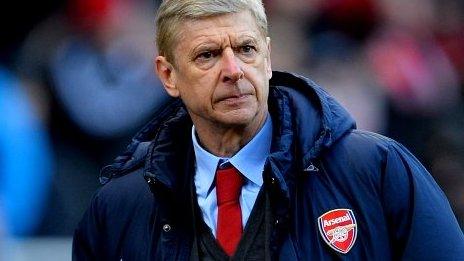
- Published21 March 2014
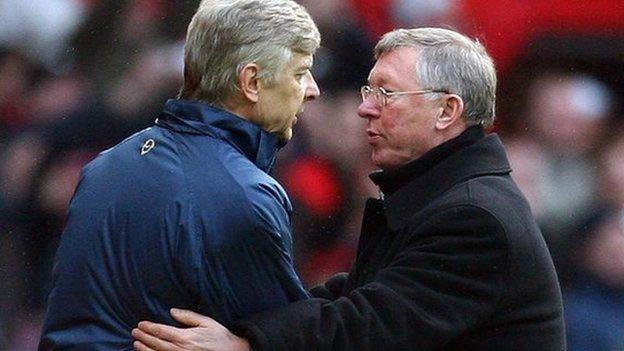
- Published21 March 2014
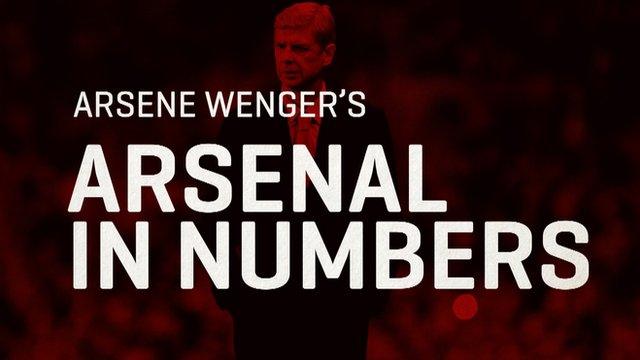
- Published20 March 2014
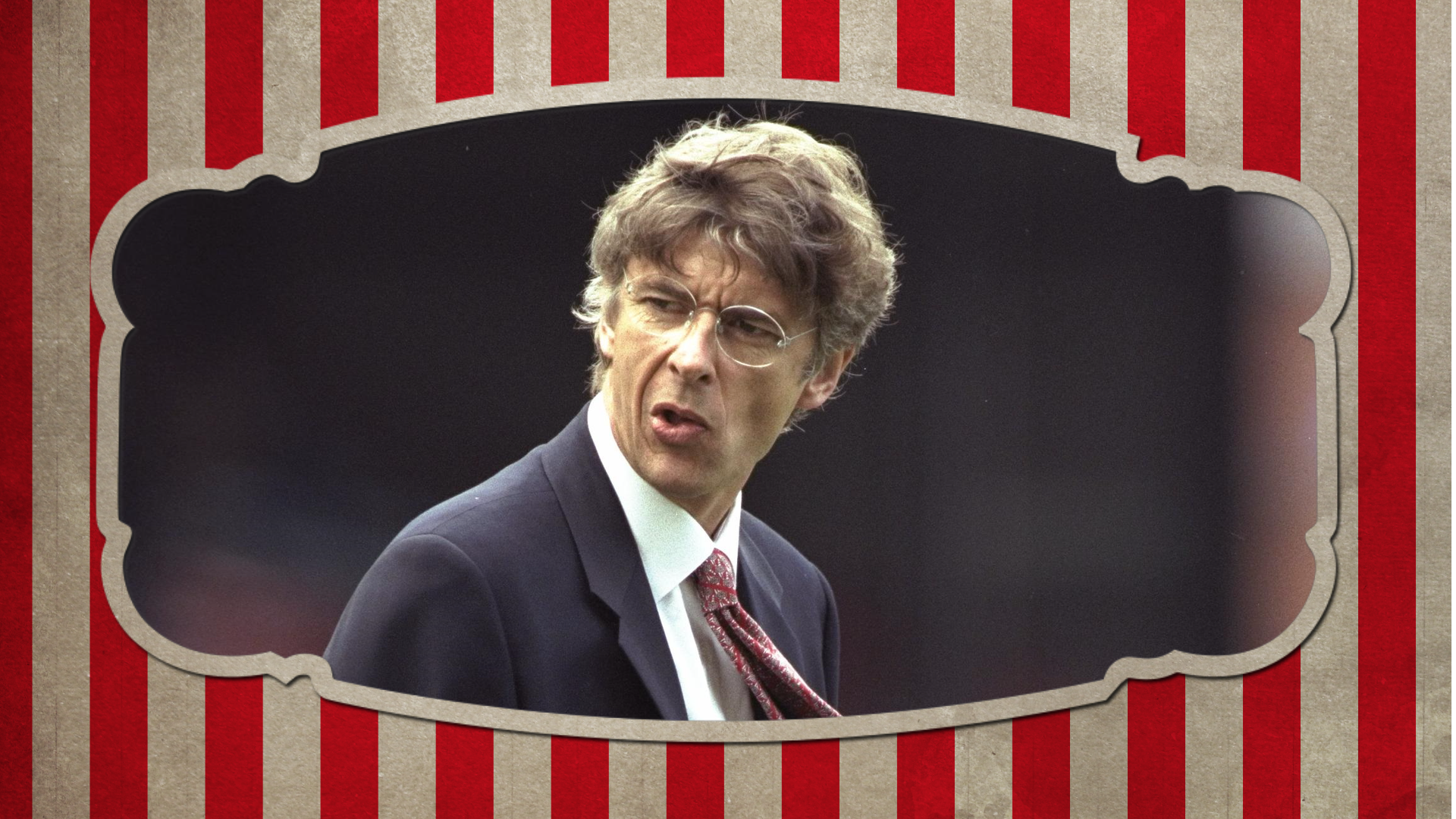
- Published7 June 2019
